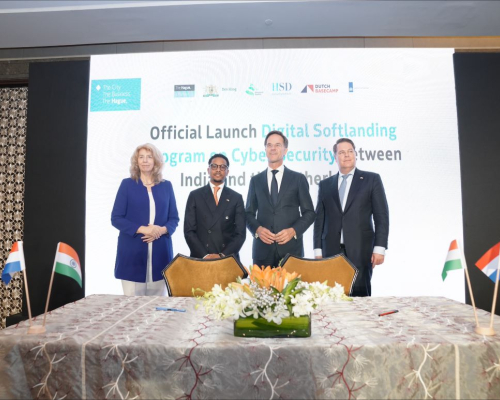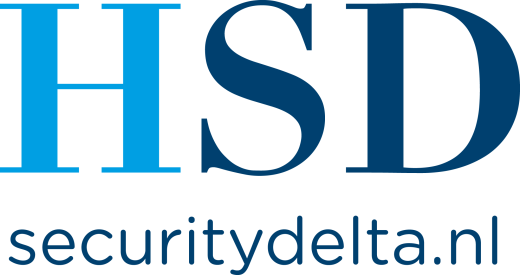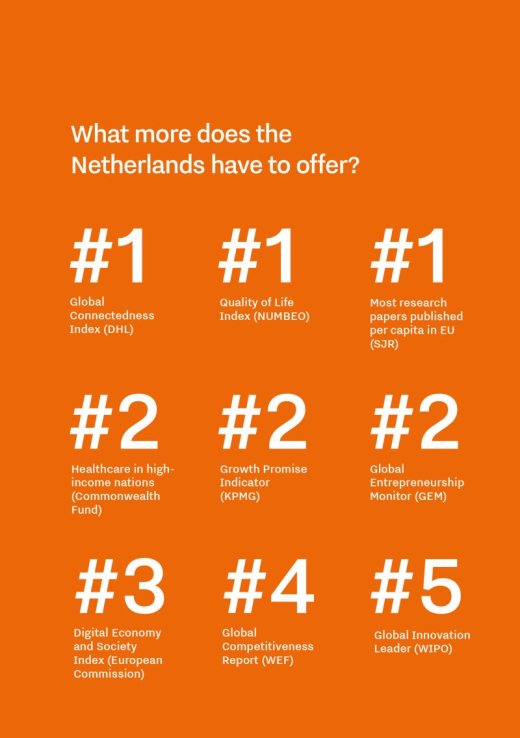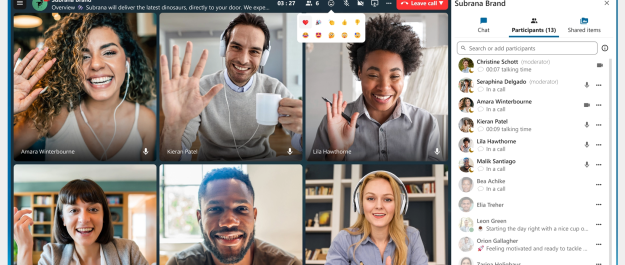The Netherlands is currently the highest ranked EU country on the most powerful countries in Cyberspace ranking of secureworld.io and ranks fifth globally. In response to ongoing digitisation, combined with increasing cyber threats, the Netherlands continues to strengthen its cybersecurity ecosystem which is centered around cluster organisation Security Delta HSD, headquartered in The Hague. In order to further develop the existing Cyber Security ecosystem, The Hague & Partners has developed their powerful Digital Softlanding Program on Cyber Security. The program is aimed at guiding highly innovative companies with their European expansion via the Netherlands through a structured digital process.
“The Netherlands has an attractive business climate in general, which is confirmed with high scores on relevant rankings. And it is particularly alluring for cybersecurity companies because of the combination of the current capabilities and reputation of the Dutch cybersecurity cluster, and the ambitions the Dutch have to further strengthen the cluster. The Digital Soft Landing Program is an important addition to the initiatives in the Netherlands to strengthen the cybersecurity cluster”
Security Delta: A collaborative hub for cyber solutions
The cybersecurity cluster is centred around cluster organisation Security Delta (HSD) with over 275 members, headquartered in The Hague. Security Delta is a prime example of the triple helix model where governments, knowledge institutes and corporates collaborate to innovate together.
Moreover, The Hague has a long heritage as the international city of peace and justice, and is an important hotspot for cybersecurity in Europe, with Europol’s European Cybercrime centre, NATO Communications and Information Agency, Global Forum on Cyber Expertise, and a large business community with companies such as Booz Allen Hamilton, DarkTrace and over 275 companies and other organisations working on a better and safer (digital) world.
HSD Campus in The Hague is the centrepoint of this ecosystem. The ecoystem facilitates activities such as triple helix collaborations, a number of real-life testing grounds, talent development programs and international collaboration. Here, Indian cybersecurity companies can hit the ground running.
"Specializing in enabling international companies to flourish within the dynamic Greater Rotterdam-The Hague region, our steadfast support guarantees a smooth and prosperous entry into this innovation-rich hub, fortified by a formidable cybersecurity ecosystem."
Digital Soft Landing; a unique high quality, easy-access setup
The Hague & Partners travelling together with demissionary Prime Minister Mark Rutte to India in September 2023, to have direct conversations with Indian cybersecurity companies who want to make a move to the European Market.
Digital soft landing for international companies started as a pilot initiative during the pandemic, to enable international businesses to explore business opportunities in The Hague despite the travel restrictions in place. The value of accessible, low key exploration of the environment proved so valuable, that the organizer of the program, The Hague and Partners have now teamed up with InnovationQuarter, Dutch BaseCamp, Security Delta (HSD), Netherlands Foreign Investment Agency and the Municipality of The Hague to build out the program together with a number of partners into an extensive business expansion program. Including one-to-one strategic consultancy from experts in the field and meetups with potential partners. The program is free of charge, but a selection is made to ensure that participants have a strong business case and add strategic value to the Dutch cybersecurity ecosystem. After completion of the digital soft landing program, participants will have developed a strategic business expansion plan for the European market, have met potential business partners and created a leads list. It’s like a free of charge catapult to European business success. And the best part is that everyone benefits.
* Picture from left to right: Marisa Gerards, Ambassador of the Kingdom of the Netherlands to India, Nepal and Bhutan. Anesh Kisoen, Business Advisor Digital Innovation & Country Specialist India for The Hague & Partners. (Demissionary) Prime Minister Mark Rutte. Ewout de Wit, Consul-General of the Kingdom of the Netherlands for South India in Bangalore.
Strengthening cyber capabilities through international collaboration
The combination of increasing geographic tensions and accelerating digitization are putting societies at serious risk. Digital warfare can be as disrupting as physical violence, and the urgency for proactive, adequate cybersecurity will only continue to grow. But cybercriminals are extremely diverse, talented and resourceful, so we need cybersecurity teams and solutions that can keep up with the continuous influx of new criminal activities. This can only be achieved through collaboration. Companies and countries alike, must work together to establish, grow and nurture cybersecurity ecosystems that are capable of fending off crimes and securing a safe and just future.
For more information about the Digital Soft Landing Program
For more information about the Digital Soft Landing Program
Full press release about the Trade Mission
Please read the press release of the Trade Mission to India by Demissionary Prime Minister Mark Rutte, The Hague & Partners and many others
SECUREWORLD
Do you want to read the full article about the Top 10 Most Powerful Countries in Cyberspace?





